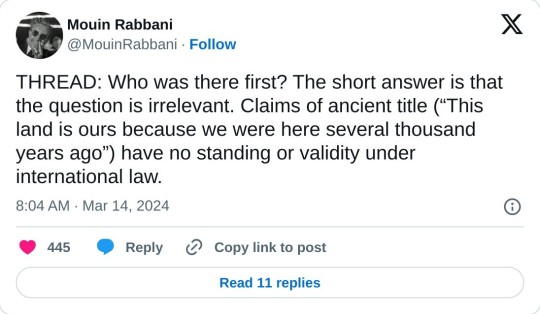Text
Crying laughing at the idea of a 15 year old wearing hip waders to the beach
Y'all make fun of the outfits from Kingdom Hearts (2002), but fail to realize that they were PULLED FROM THEIR HOMES on a day that they were playing at the beach.

They HAVE normal clothes. They were wearing beach attire. Imagine being pulled through a dimensional portal while you're swimming and building sandcastles. Congrats! Your only clothes are these now:

3K notes
·
View notes
Text
Sam broke up with Alice.
He broke up with Alice because she didn't know how to take some things seriously. She didn't know when to turn off the jokes. She made one too many jokes about something that wasn't funny and Sam got sick of it.
Do you ever wonder if Alice sat alone in her flat, wishing she was a different person so that she could be what Sam wanted?
And now he needs a job and she wants him back in her life. As a coworker, as a friend, anything. She'll take anything. She misses him.
She's learned her lesson this time. And now every time Sam tells Alice to "turn it off" she does so without any hesitation. She shuts right the hell up. She doesn't do that with any other person in the office. But for Sam, she'll try and be what he wants her to be.
And he goes and gets a crush on his coworker. Not Alice, though. Never Alice. No, he gets a crush on the beautiful, emotionally available girl that he has no past with and all the promises of a future. And she has to watch him bounce around her in a twitter pated mess, trying and failing to flirt and she remember what it was like when he was flirting with her. She remember that sweet, earnest care he gave her and how he too once offered her his good teas.
Maybe it wasn't enough just to be coworkers, to be friends. But it's too late now.
And now he comes back from his date, drunk and happy and looking like he's just a few more dates from getting lucky. She probably doesn't make awkward jokes because she doesn't know how to be real and authentic. Celia's probably perfect for Sam, the way Alice never was.
And now all Alice has left are the jokes, so she makes them and she hopes they hide everything.
They don't. Of course they don't.
"Be professional."
And now she's standing there. The ex girlfriend who's not over her old flame and everyone in the office knows it. She's standing there alone and Sam has robbed her of all the jokes.
Who is she without them?
1K notes
·
View notes
Text
The new rwby short reminded me of one of my favourite aspects of team rwby. Which is that it starts with Weiss and Blake being two traumatised teens with dark backstories who meet Ruby and Yang who are like wow! You guys seem to have a lot of baggage and we'd like to help with that. We're just normal sisters but we'll do our best :D
And then cut to 9 seasons later when Weiss and Blake have conquered their demons, reconnected with their families and are slowly healing meanwhile every small drip of lore we get about Ruby and Yang's family feels like this

367 notes
·
View notes
Text
The majority of people are horny. People are always going to be horny. You cannot stop people from being horny. Throughout history there have been extensive attempts to suppress horniness and they haven’t worked. You can be mad about it all you want but horniness will prevail against any adversity. There will always be an aspect of horniness within society. Sexuality cannot be contained by having missionary sex with your spouse alone in the privacy of a dark bedroom.
14K notes
·
View notes
Text
The only argument you should need for weekly releases is what happened to the JoJo anime. For five straight series, JoJo was the hottest thing in the anime community. Then they switched to bulk releases for Stone Ocean, and it was gone. No more JoJo fridays. No discussion, no memes, no hype. The fumble was downright painful. Weekly episodes are the proven way to keep engagement high, keep people talking, attract new viewers. I'm still salty.
2K notes
·
View notes
Text

Rhea will get her title back ezpz
And Dom will get a title… (I beg)
164 notes
·
View notes
Text

twitter thread by Mouin Rabbani
March 14, 2024
Who was there first? The short answer is that the question is irrelevant. Claims of ancient title (“This land is ours because we were here several thousand years ago”) have no standing or validity under international law.
For good reason, because such claims also defy elementary common sense. Neither I nor anyone reading this post can convincingly substantiate the geographical location of their direct ancestors ten or five or even two thousand years ago.
If we could, the successful completion of the exercise would confer exactly zero property, territorial, or sovereign rights.
As a thought experiment, let’s go back only a few centuries rather than multiple millennia. Do South Africa’s Afrikaners have the right to claim The Netherlands as their homeland, or even qualify for Dutch citizenship, on the basis of their lineage?
Do the descendants of African-Americans who were forcibly removed from West Africa have the right to board a flight in Atlanta, Port-au-Prince, or São Paolo and reclaim their ancestral villages from the current inhabitants, who in all probability arrived only after – perhaps long after – the previous inhabitants were abducted and sold into slavery half a world away?
Do Australians who can trace their roots to convicts who were involuntarily transported Down Under by the British government have a right to return to Britain or Ireland and repossess homes from the present inhabitants even if, with the help of court records, they can identify the exact address inhabited by their forebears? Of course not.
In sharp contrast to, for example, Native Americans or the Maori of New Zealand, none of the above can demonstrate a living connection with the lands to which they would lay claim.
To put it crudely, neither nostalgic attachment nor ancestry, in and of themselves, confer rights of any sort, particularly where such rights have not been asserted over the course of hundreds or thousands of years.
If they did, American English would be the predominant language in large parts of Europe, and Spain would once again be speaking Arabic.
Nevertheless, the claim of ancient title has been and remains central to Zionist assertions of not only Jewish rights in Palestine, but of an exclusive Jewish right to Palestine.
For the sake of argument, let’s examine it. If we put aside religious mythology, the origin of the ancient Israelites is indeed local.
In ancient times it was not unusual for those in conflict with authority or marginalized by it to take to the more secure environment of surrounding hills or mountains, conquer existing settlements or establish new ones, and in the ultimate sign of independence adopt distinct religious practices and generate their own rulers. That the Israelites originated as indigenous Canaanite tribes rather than as fully-fledged monotheistic immigrants or conquerors is more or less the scholarly consensus, buttressed by archeological and other evidence. And buttressed by the absence of evidence for the origin stories more familiar to us.
It is also the scholarly consensus that the Israelites established two kingdoms, Judah and Israel, the former landlocked and covering Jerusalem and regions to the south, the latter (also known as the Northern Kingdom or Samaria) encompassing points north, the Galilee, and parts of contemporary Jordan. Whether these entities were preceded by a United Kingdom that subsequently fractured remains the subject of fierce debate.
What is certain is that the ancient Israelites were never a significant regional power, let alone the superpower of the modern imagination.
There is a reason the great empires of the Middle East emerged in Egypt, Mesopotamia, Persia, and Anatolia – or from outside the region altogether – but never in Palestine.
It simply lacked the population and resource base for power projection. Jerusalem may be the holiest of cities on earth, but for almost the entirety of its existence, including the period in question, it existed as a village, provincial town or small city rather than metropolis.
Judah and Israel, like the neighboring Canaanite and Philistine entities during this period, were for most of their existence vassal states, their fealty and tribute fought over by rival empires – Egyptians, Assyrians, Babylonians, etc. – rather than extracted from others.
Indeed, Israel was destroyed during the eighth century BCE by the Assyrians, who for good measured subordinated Judah to their authority, until it was in the sixth century BCE eliminated by the Babylonians, who had earlier overtaken the Assyrians in a regional power struggle.
The Babylonian Exile was not a wholesale deportation, but rather affected primarily Judah’s elites and their kin. Nor was there a collective return to the homeland when the opportunity arose several decades later after Cyrus the Great defeated Babylon and re-established a smaller Judah as a province of the Persian Achaemenid empire. Indeed, Mesopotamia would remain a key center of Jewish religion and culture for centuries afterwards.
Zionist claims of ancient title conveniently erase the reality that the ancient Israelites were hardly the only inhabitants of ancient Palestine, but rather shared it with Canaanites, Philistines, and others.
The second part of the claim, that the Jewish population was forcibly expelled by the Romans and has for 2,000 years been consumed with the desire to return, is equally problematic.
By the time the Romans conquered Jerusalem during the first century BCE, established Jewish communities were already to be found throughout the Mediterranean world and Middle East – to the extent that a number of scholars have concluded that a majority of Jews already lived in the diaspora by the time the first Roman soldier set foot in Jerusalem.
These communities held a deep attachment to Jerusalem, its Temple, and the lands recounted in the Bible. They identified as diasporic communities, and in many cases may additionally have been able to trace their origins to this or that town or village in the extinguished kingdoms of Israel and Judah. But there is no indication those born and bred in the diaspora across multiple generations considered themselves to be living in temporary exile or considered the territory of the former Israelite kingdoms rather than their lands of birth and residence their natural homeland, any more than Irish-Americans today feel they properly belong in Ireland rather than the United States.
Unlike those taken in captivity to Babylon centuries earlier, there was no impediment to their relocation to or from their ancestral lands, although economic factors appear to have played an important role in the growth of the diaspora.
By contrast, those traveling in the opposite direction appear to have done so, more often than not, for religious reasons, or to be buried in Jerusalem’s sacred soil.
Nations and nationalism did not exist 2,000 years ago.
Nor Zionist propagandists in New York, Paris, and London incessantly proclaiming that for two millennia Jews everywhere have wanted nothing more than to return their homeland, and invariably driving home rather than taking the next flight to Tel Aviv.
Nor insufferably loud Americans declaring, without a hint of irony or self-awareness, the right of the Jewish people to Palestine “because they were there first”.
Back to the Romans, about a century after their arrival a series of Jewish rebellions over the course of several decades, coupled with internecine warfare between various Jewish factions, produced devastating results.
A large proportion of the Jewish population was killed in battle, massacred, sold into slavery, or exiled. Many towns and villages were ransacked, the Temple in Jerusalem destroyed, and Jews barred from entering the city for all but one day a year.
Although a significant Jewish presence remained, primarily in the Galilee, the killings, associated deaths from disease and destitution, and expulsions during the Roman-Jewish wars exacted a calamitous toll.
With the destruction of the Temple Jerusalem became an increasingly spiritual rather than physical center of Jewish life. Jews neither formed a demographic majority in Palestine, nor were the majority of Jews to be found there.
Many of those who remained would in subsequent centuries convert to Christianity or Islam, succumb to massacres during the Crusades, or join the diaspora. On the eve of Zionist colonization locally-born Jews constituted less than five per cent of the total population.
As for the burning desire to return to Zion, there is precious little evidence to substantiate it. There is, for example, no evidence that upon their expulsion from Spain during the late fifteenth century, the Sephardic Jewish community, many of whom were given refuge by the Ottoman Empire that ruled Palestine, made concerted efforts to head for Jerusalem. Rather, most opted for Istanbul and Greece.
Similarly, during the massive migration of Jews fleeing persecution and poverty in Eastern Europe during the nineteenth century, the destinations of choice were the United States and United Kingdom.
Even after the Zionist movement began a concerted campaign to encourage Jewish emigration to Palestine, less than five per cent took up the offer. And while the British are to this day condemned for limiting Jewish immigration to Palestine during the late 1930s, the more pertinent reality is that the vast majority of those fleeing the Nazi menace once again preferred to relocate to the US and UK, but were deprived of these havens because Washington and London firmly slammed their doors shut.
Tellingly, the Jewish Agency for Israel in 2023 reported that of the world’s 15.7 million Jews, 7.2 million – less than half – reside in Israel and the occupied Palestinian territories.
According to the Agency, “The Jewish population numbers refer to persons who define themselves as Jews by religion or otherwise and who do not practice another religion”.
It further notes that if instead of religion one were to apply Israel’s Law of Return, under which any individual with one or more Jewish grandparent is entitled to Israeli citizenship, only 7.2 of 25.5 million eligible individuals (28 per cent) have opted for Zion.
In other words, “Next Year in Jerusalem” was, and largely remains, an aspirational religious incantation rather than political program. For religious Jews, furthermore, it was to result from divine rather than human intervention.
For this reason, many equated Zionism with blasphemy, and until quite recently most Orthodox Jews were either non-Zionist or rejected the ideology altogether.
Returning to the irrelevant issue of ancestry, if there is one population group that can lay a viable claim of direct descent from the ancient Israelites it would be the Samaritans, who have inhabited the area around Mount Gerizim, near the West Bank city of Nablus, without interruption since ancient times.
Palestinian Jews would be next in line, although unlike the Samaritans they interacted more regularly with both other Jewish communities and their gentile neighbors.
Claims of Israelite descent made on behalf of Jewish diaspora communities are much more difficult to sustain. Conversions to and from Judaism, intermarriage with gentiles, absorption in multiple foreign societies, and related phenomena over the course of several thousand years make it a virtual certainty that the vast majority of Jews who arrived in Palestine during the late 19th and first half of the 20th century to reclaim their ancient homeland were in fact the first of their lineage to ever set foot in it.
By way of an admittedly imperfect analogy, most Levantines, Egyptians, Sudanese, and North Africans identify as Arabs, yet the percentage of those who can trace their roots to the tribes of the Arabian Peninsula that conquered their lands during the seventh and eighth centuries is at best rather small.
Ironically, a contemporary Palestinian, particularly in the West Bank and Galilee, is likely to have more Israelite ancestry than a contemporary diaspora Jew.
The Palestinians take their name from the Philistines, one of the so-called Sea Peoples who arrived on the southern coast of Canaan from the Aegean islands, probably Crete, during the late second millennium BCE.
They formed a number of city states, including Gaza, Ashdod, and Ashkelon. Like Judah and Israel they existed primarily as vassals of regional powers, and like them were eventually destroyed by more powerful states as well.
With no record of their extermination or expulsion, the Philistines are presumed to have been absorbed by the Canaanites and thereafter disappear from the historical record.
Sitting at the crossroads between Asia, Africa, and Europe, Palestine was over the centuries repeatedly conquered by empires near and far, absorbing a constant flow of human and cultural influences throughout.
Given its religious significance, pilgrims from around the globe also contributed to making the Palestinian people what they are today.
A common myth is that the Palestinian origin story dates from the Arab-Muslim conquests of the seventh century. In point of fact, the Arabs neither exterminated nor expelled the existing population, and the new rulers never formed a majority of the population.
Rather, and over the course of several centuries, the local population was gradually Arabized, and to a large extent Islamized as well.
So the question as to who was there first can be answered in several ways: “both” and “irrelevant” are equally correct.
Indisputably, the Zionist movement had no right to establish a sovereign state in Palestine on the basis of claims of ancient title, which was and remains its primary justification for doing so.
That it established an exclusivist state that not only rejected any rights for the existing Palestinian population but was from the very outset determined to displace and replace this population was and remains a historical travesty.
That it as a matter of legislation confers automatic citizenship on millions who have no existing connection with the land but denies it to those who were born there and expelled from it, solely on the basis of their identity, would appear to be the very definition of apartheid.
The above notwithstanding, and while the Zionist claim of exclusive Israeli sovereignty in Palestine remains illegitimate, there are today several million Israelis who cannot be simply wished away.
A path to co-existence will need to be found, even as the genocidal nature of the Israeli state, and increasingly of Israeli society as well, makes the endeavor increasingly complicated.
The question, thrown into sharp relief by Israel’s genocidal onslaught on the Palestinian population of the Gaza Strip, is whether co-existence with Israeli society can be achieved without first dismantling the Israeli state and its ruling institutions.
253 notes
·
View notes
Text

#this is really the heart of the issue that no one wants to talk about#I promise ill go back to rebloging random fandom stuff now
8K notes
·
View notes
Text
C'mon, Mike's Rock Hard Cafe was right there
Mike’s Hard Rock Cafe
87 notes
·
View notes
Text
Cody vs Melo is gonna FUCK
4 notes
·
View notes
Text
Orthworm, Steelix, and Onix are keystone species. Their burrows are used by a variety of Pokémon as dens, nurseries, and places to hide from predators. Without the burrows, several species would become rare or even extinct.
6 notes
·
View notes
Text
The current state of pop girlies is so funny like
Ariana Grande: getting dragged for homewrecking with the guy who played SpongeBob in the SpongeBob musical
Taylor Swift: dropping her worst album in years about how deeply obsessed she is with Matty Healy
Billie Eilish, for some reason:

24K notes
·
View notes
Text
Just the fact that the moderate, liberal position on Palestine for most of my life was "these millions of people should just endure permanent brutal apartheid without complaint, and also if you call it 'apartheid' you're an antisemite," and now it's evolved to "Israel should be able to kill as many of them as it wants, and if you complain, then you're an antisemite in the pay of Russia and China"
5K notes
·
View notes
Text
They should remove the age requirement for presidency. Its time for america to enter its despotic boy-king era
15K notes
·
View notes
Text
I can’t believe “fake gamer girl” was an actual concept guys thought existed literally the most unfuckable guys who have ever lived were convinced girls were faking being interested in loser nerd hobbies to impress them
21K notes
·
View notes
Text
Posts from the year 400 CE
if they don't affirm the Nicene Creed, they are not Christians. if they claim to be Christians but they don't affirm the Nicene Creed, they are 9 times out of 10 a cult.
689 notes
·
View notes
